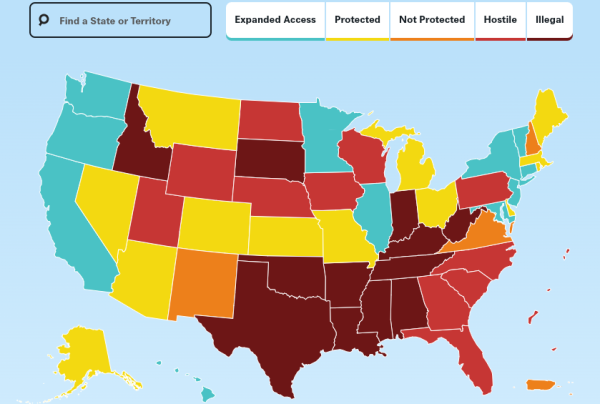
In over a dozen states, abortion after conception is banned in almost all circumstances. Since the overturning of Roe v. Wade in 2022, the choice to have an abortion is no longer a constitutionally protected right. The recent election of Donald Trump has set off alarm bells for those concerned over the future of their reproductive freedom.
“I think the fact that the right to an abortion was taken away says something about a woman’s autonomy and her choice. It’s really scary as a girl entering adulthood,” an anonymous student voices.
For those who oppose abortion, Trump’s election is a step in the right direction towards securing the right to life for embryos.
“I think that every baby, regardless of circumstances, deserves the right to life. The Republican administration is going to protect that belief,” expresses an anonymous student.
Regardless of personal beliefs, it’s pivotal to know the facts on such a hot-button issue as this, and be wary of misinformation propagated online.
The overturning of Roe v. Wade in the court case Dobbs v. Jackson Women’s Health Organization essentially returns the power to make decisions about abortion rights to the states, explains AP Government & Politics teacher Mr. Austin Cesare.
In order to criminalize abortions, Cesare elaborates, “A bill would need to be approved by both Houses of Congress and signed by the President could make abortions illegal. A Supreme Court ruling that went further than the most recent one could also ban abortions, if the Court decided to do so.”
As president, Trump also possesses the executive power to significantly restrict abortion access, but no president in American history has ever enacted a complete national ban on abortion. His actions may also be contested in the courts, Cesare expands.
It’s important to note the conservative majority in all three branches of government, which could potentially lead to tighter restrictions on abortion policy.
“When women with unwanted pregnancies face barriers to obtaining quality abortion, they often resort to unsafe abortion,” according to the World Health Organization.
As of 2024, Connecticut state law guarantees the right to abortion healthcare, and protects the right to an abortion regardless of state of origin up to 24 weeks after conception according to the State of Connecticut website. After 24 weeks, abortions are only available if pregnancy poses a risk to the pregnant person’s health or life.
The Center for Reproductive Rights provides a map detailing abortion policy by state, as well as an extensive list of types of abortion policies including protections, restrictions, and access.









